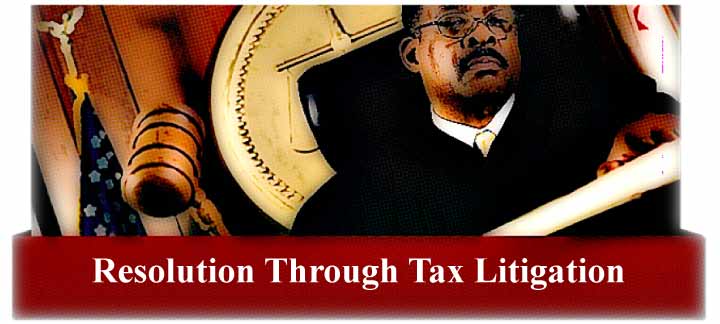Tax Litigation After the Appeals Process
When facing off against the IRS for whatever reason, there is always a process for escalation wherein if your case is not resolved you can seek the attention of a higher authority. Typically a qualified and experienced tax attorney is recommended to guide you through the process, however you should be aware of what to expect along the way.
What Happens if I Do Not Resolve My Case at the Appeal Level?
If you are unable to resolve your case at the tax appeals level, then you have the opportunity to pursue tax litigation at tax court or district court.
What is a Notice of Deficiency?
Most
What Are the Advantages of Litigation in the U.S. Tax Court?
Although taxpayers have the option of litigation in several courts, most cases are litigated in the United States Tax Court. The main advantage of
If the taxpayer does not appeal to the U.S. Tax Court, then he or she would be required to pay the full taxes and any penalties associated with the IRS assessment. Then, the taxpayer would have to sue for a refund. This is a less desirable option for most taxpayers because it requires the taxpayer to pay a large sum at the beginning of the tax litigation process.
What to Expect if Your Case Goes to Trial
Tax Court judges have the responsibility of interpreting the provisions of the Internal Revenue Code and ensuring that taxpayers are treated fairly and equitably. The tax litigation trials are generally conducted in front of a judge, but no jury. During the trial, the IRS will be represented by an IRS District Counsel. Each side will present its case; as with any other trial, the IRS District Counsel can present its own witnesses and evidence and cross-examine the taxpayer’s witnesses.
Many cases settle before the trial. However, if a trial takes place, the judge will issue a report setting forth the findings of fact and an opinion. The judge enters a decision stating the amount of the deficiency owed by the taxpayer, as well as any penalties and interest. If a taxpayer disagrees with a decision of the U.S. Tax Court, he or she can then appeal to the
Tax Litigation Requires the Expertise of a Tax Attorney
Tax litigation consists of a trial involving numerous procedural and evidentiary rules. In addition to presenting the information thoroughly and concisely, the case the litigating attorney must comply with hundreds of rules regarding pleadings, discovery, depositions, pre-trial conferences, and trial procedures. A tax lawyer specifically experienced in tax litigation is equipped with the knowledge and skills to successfully litigate a case at the U.S. Tax Court. The Tax Attorney - William Hartsock and his team are knowledgeable and experienced in tax litigation, and will work tirelessly to ensure a positive outcome at trial.
For a free consultation with the full benefit of attorney client privilege call (858)481-4844 or fill out the contact form found on this page.



Comments (0)